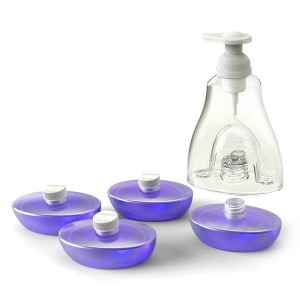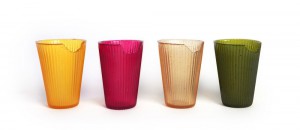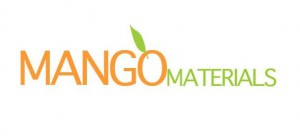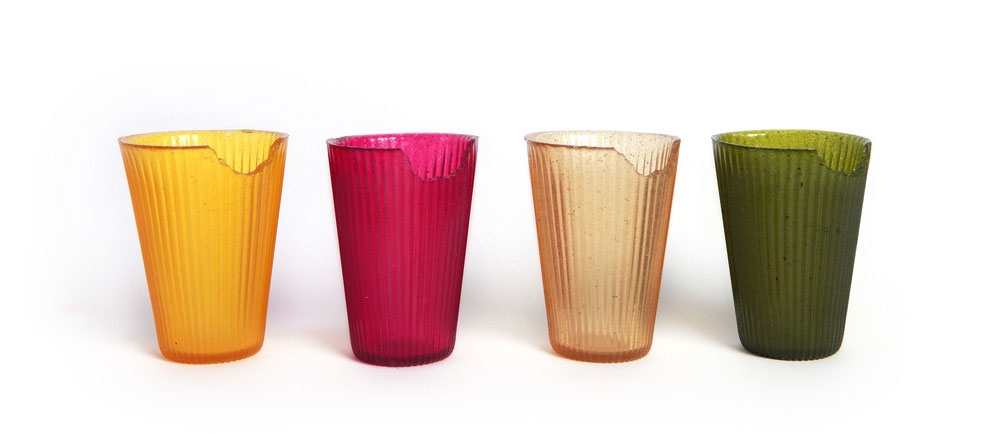At GreenBlue, we like to follow a sustainable materials management agenda of “use wisely, eliminate toxicity, and recover more.” Thursday morning at SustPack2015’s Innovative Packaging Flash Talks, each innovation appropriately originated from similar sustainability goals.
Jason Foster began the session talking about Replenish, a company and product designed to eliminate waste and save consumers money. Replenish uses a concentrate refill pod and a plastic bottle to create a reusable product that is typically found in a disposable package with a one-time-use product. Foster got the idea for the product after he noticed that companies were not using their products, and ultimately money wisely. Many products (particularly cleaning, personal care, and detergent products) are 90% water, and Foster thought why ship so much water in unnecessary containers when consumers have this substance in their homes already. Thus the Replenish Refill System was born. Check it out – the idea is pretty amazing and it’s hard to believe no one thought of it sooner!

Loliware is a start-up company only about a year old that is taking a very unique approach to foodservice packaging. Chelsea Briganti presented about her company that created the first “biodegr[edible]” cups as they like to call it. Loliware cups are biodegradable and edible! This is a new company that currently only sells cups, but it is incredible to think of other ways this technology could be used. Brigante mentioned the idea of an edible water bottle to be used in marathons or developing nations. At $12 for 4 cups, I might not trade out my disposable cups for edible ones quite yet, but I’m intrigued to see how the company and innovation grows in the next few years.

Next up was Travis Carter of Veritiv speaking about a collaborative innovation his company worked on with Dell. Veritiv helped Dell determine how to use their waste (Old Corrugated Cardboard, or OCC) to their advantage. Through the partnership, Dell transitioned from EPE foam cushion packaging to OCC molded fiber cushions. Approximately 80% of the OCC used for the new fiber cushions originated from Dell waste. This was a great example of how a material can change from “waste” to a valuable resource with the help of collaboration and innovation. I do wonder though if Dell is further working on the recovery end and articulating recyclability to their consumers to help close the loop.

The next innovation is based on the chemical process of creating a biodegradable plastic from methane. Molly Morse told the SustPack audience about the process and benefits of the Mango Materials technology. Mango Materials’ plastics can biodegrade in home and industrial composting facilities, and initially they are focusing on plastics that will likely end up in nature and could most benefit from biodegradability (marine environments, agriculture, etc.) Currently Mango Materials is focused on microbeads found in cleansers. These beads are typically polyethylene and often slip through the waste water treatment facilities and end up polluting our waterways. This would not be an issue with biodegradable Mango Materials plastic. Sounds like a great solution to a trending issue in the sustainability industry!

Last but certainly not least, Eduardo Ruiz of the Dow Chemical Company spoke about Dow’s polyethylene stand-up pouch. The stand-up pouch is a game-changer in the food industry as a recyclable alternative to standard multi-material pouches. As a pure polyethylene (PE) pouch, the package is recyclable at retail and store drop-off locations that accept other PE packages such as grocery, dry cleaning, and produce bags, case wraps, and packaging air-pillows. Ruiz gave the How2Recycle Label a mention, as these stand-up pouches are eligible to carry the Store Drop-off Label indicating to consumers their recyclability. Currently the technology is being used for pouch packages for dry and frozen foods and this will likely be expanded in the future to industries such as personal care, detergents, beverages, etc.

Be sure to keep these folks on your radar, as unique innovations such as these are bound to grow in the coming years!
Categories
Inspiring products showcased at SUSTPACK


